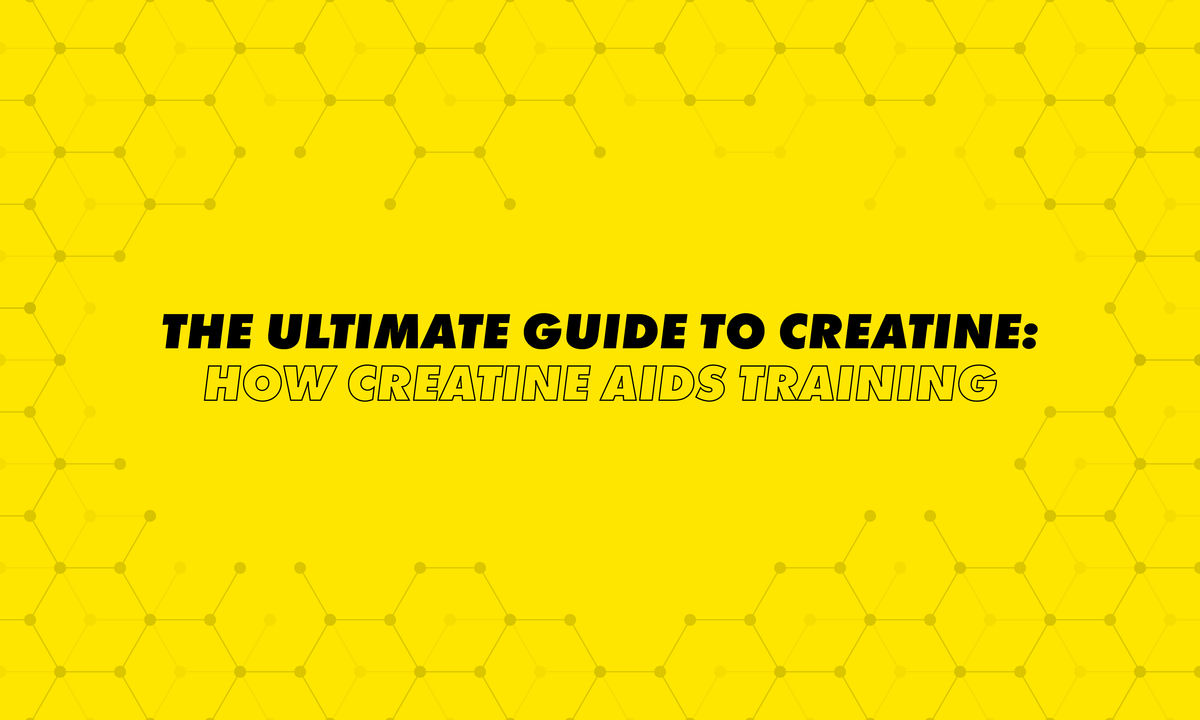What Is Creatine? A Practical Guide For Beginners

Table of Contents
Creatine is a naturally occurring organic compound found in the body and certain foods, primarily red meat and fish. It plays a vital role in energy production within muscle cells, making it a popular supplement among athletes and fitness enthusiasts. This article will help you make informed decisions about incorporating creatine into your routine.
Understanding Creatine's Role in Muscle Growth and Performance
Creatine's primary function is to increase the storage of creatine phosphate in your muscles. Creatine phosphate is crucial for regenerating adenosine triphosphate (ATP), the primary energy source for muscle contractions. By increasing creatine phosphate stores, creatine supplementation leads to enhanced ATP regeneration, allowing you to perform more repetitions and sets during high-intensity exercise.
The benefits of creatine supplementation are well-documented:
- Increased strength and power: Creatine helps you lift heavier weights and perform more explosive movements, crucial for strength training and powerlifting.
- Enhanced muscle growth and hypertrophy: By supporting increased ATP production, creatine facilitates muscle protein synthesis, leading to muscle growth.
- Improved high-intensity exercise capacity: Whether it's sprinting, weightlifting, or high-intensity interval training (HIIT), creatine improves your performance in short bursts of intense activity.
- Faster muscle recovery: Creatine can help reduce muscle soreness and fatigue after intense workouts, allowing you to train harder and more frequently.
- Potential cognitive benefits: Some studies suggest that creatine may improve cognitive function, although more research is needed in this area.
Creatine monohydrate is the most researched and widely used form of creatine, making it the ideal choice for beginners. Its effectiveness in enhancing muscle building and strength training is undeniable. Its role in athletic performance enhancement is also well-established.
Types of Creatine Supplements and Which to Choose
Several forms of creatine supplements are available, each with its own purported advantages. However, creatine monohydrate remains the gold standard due to its extensive research and proven effectiveness.
-
Creatine Monohydrate: This is the most researched and effective form of creatine. Its benefits have been extensively documented in numerous scientific studies. For beginners, creatine monohydrate is the best starting point. The creatine monohydrate benefits outweigh those of other forms for most people.
-
Creatine HCL (Hydrochloride): Creatine HCL is marketed as having superior absorption compared to monohydrate. However, the scientific evidence supporting this claim is still limited. More research is needed to definitively determine its superiority over creatine monohydrate.
-
Other forms: Other forms of creatine exist (e.g., creatine ethyl ester, creatine magnesium chelate), but these are generally less researched and may not offer significant advantages over creatine monohydrate. For beginners, sticking with creatine monohydrate is recommended. Choosing the best creatine supplement is simplified by focusing on this proven option.
How to Take Creatine Safely and Effectively
To maximize creatine's benefits, it's recommended to follow a loading phase followed by a maintenance phase.
-
Loading phase: During the loading phase (5-7 days), consume 20 grams of creatine monohydrate per day, divided into 4-5 doses. This rapidly saturates your muscles with creatine.
-
Maintenance phase: After the loading phase, switch to a maintenance dose of 3-5 grams of creatine monohydrate per day. This helps maintain the elevated creatine levels in your muscles.
Adequate hydration is crucial when taking creatine. Creatine draws water into your muscle cells, so ensure you drink at least 2-3 liters of water daily. This is vital for optimizing creatine's effects and preventing potential side effects. A creatine dosage guide should always emphasize proper hydration. You can also consider cycling creatine, meaning you take it for a period, then take a break before restarting, though this is optional. Remember to always follow a creatine dosage guide for best results.
Potential Side Effects and Precautions of Creatine
While generally safe, creatine supplementation can sometimes cause mild side effects:
- Water retention: Creatine can cause temporary weight gain due to water retention in muscles.
- Muscle cramps: Some individuals experience muscle cramps, particularly during the initial phase of supplementation.
- Gastrointestinal issues: These are rare but can include nausea, diarrhea, or bloating.
These side effects are generally mild and temporary. However, individuals with pre-existing kidney conditions should consult their doctor before taking creatine, as it could potentially strain the kidneys. A clear understanding of creatine safety is crucial.
Conclusion: Making Informed Decisions about Creatine Supplementation
Creatine supplementation can significantly enhance muscle growth, strength, and high-intensity exercise performance. Understanding creatine's role in ATP regeneration is key to appreciating its benefits. By following a proper creatine dosage guide, including a loading and maintenance phase, and ensuring adequate hydration, you can maximize its benefits while minimizing potential side effects.
Remember, while creatine is generally safe for healthy individuals, it's always best to consult with a healthcare professional or registered dietitian before starting any new supplement regimen, including creatine. Learn more about creatine and its benefits, or find the right creatine supplement for your needs.

Featured Posts
-
 Reddit Not Working Troubleshooting Tips And Current Status
May 17, 2025
Reddit Not Working Troubleshooting Tips And Current Status
May 17, 2025 -
 Severance Star Gwendoline Christie On Challenges And Game Of Thrones
May 17, 2025
Severance Star Gwendoline Christie On Challenges And Game Of Thrones
May 17, 2025 -
 Upad Prosvjednika U Tesla Showroom U Berlinu Jesu Li Ozbiljna Prijetnja
May 17, 2025
Upad Prosvjednika U Tesla Showroom U Berlinu Jesu Li Ozbiljna Prijetnja
May 17, 2025 -
 Palmeiras 2 0 Bolivar Resultado Resumen Y Goles Del Partido
May 17, 2025
Palmeiras 2 0 Bolivar Resultado Resumen Y Goles Del Partido
May 17, 2025 -
 Mlb Game Day Yankees Vs Mariners Prediction And Betting Analysis
May 17, 2025
Mlb Game Day Yankees Vs Mariners Prediction And Betting Analysis
May 17, 2025
